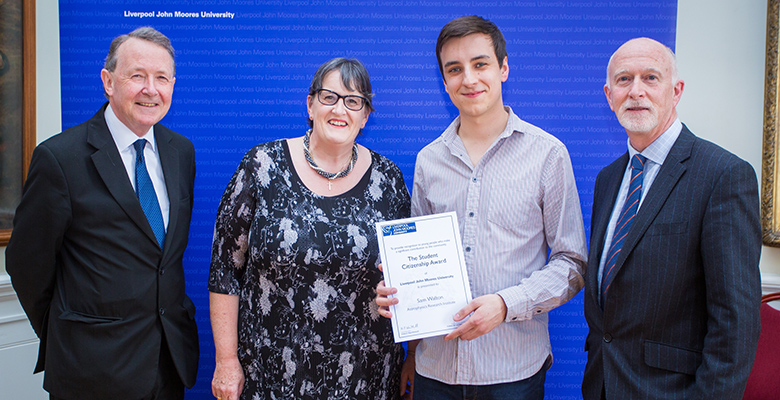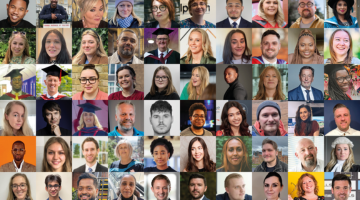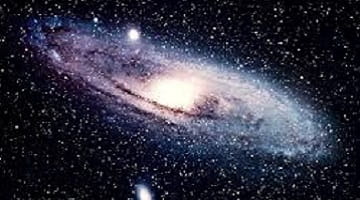Are we alone? Professor Monica Grady delivers latest Roscoe lecture

Are we alone? Is there the possibility of life elsewhere beyond the earth? This was the subject of a fascinating lecture on the cosmos and the universe in the latest Roscoe lecture at St Georges Hall, delivered by Monica Grady, Professor of Planetary and Space Sciences at the Open University (OU).
An audience of over 600 was given an out of this world insight into the possibilities of life on other planets and the implications of other life forms being found in space. The lecture covered an array of subjects including the role of comets; stages in the origin of life; the Earth; Mars; ancient fossil life on earth; life beyond the solar system; and evolution.
The lecture concluded with three questions; Have we found evidence for extant life beyond earth? The answer; No. Have we found evidence for extinct life beyond earth? Again, no. And finally, have we found evidence for habitats where life might exist beyond earth. For this one, the answer was yes, we have.
Prof Monica Grady – who has an asteroid named after her, the 'Monicagrady' – has been working in the field of space sciences since her first undergraduate studies at the university of Durham. She completed a PhD in carbon in meteorites at the University of Cambridge before first working at the OU and then joining the Department of Mineralogy of the Natural History Museum in London. Monica was Honorary Professor in the Department of Earth Sciences at University College London (2004-2007) and Senior Visiting Research Fellow in the Planetary and Space Sciences Research Institute at the Open University (2001), before rejoining the OU in 2005 in her current position.
Monica's research interests are in the fields of carbon and nitrogen stable isotope geochemistry of primitive meteorites and of martian meteorites, interstellar components in meteorites, micrometeorites, and also in astrobiology and life in space. She has worked with astronomers in order to make connections between dust observed around stars with that analysed in the laboratory. Monica is currently working with a team of Norwegian scientists to develop a miniature combined infra red spectrometer and microscope, for deployment on the surface of Mars or an asteroid.
She has led major research programmes in study of meteorites. Her main work has been in trying to understand the history of carbon and water on Mars, and interactions between surface, atmosphere and hydro(cryo)sphere. She has pursued this through investigation of minor components in martian meteorites, components that were formed by alteration processes on the surface of Mars. Over the past few years, data gathered by remote spectroscopy from orbiting satellites has allowed results from meteorites to be linked with the martian surface.
A member of STFC's Science Board and ESA's Solar System Advisory Committee, Monica was an Associate editor of Geochimica Chemica Acta from 2002-2005, and of Elements from 2004-2007. In 2003, she gave the Royal Institution Christmas lectures on the theme 'Voyage in Space and Time'.
Listen to the Monica Grady Roscoe Lecture here
Monica was also interviewed ahead of her lecture on BBC Radio Merseyside 1hr5m in.
From left in photo: The Rt Hon Prof, the Lord Alton of Liverpool, Prof Monica Grady, Sam Walton (PhD student at ARI and recipient of the Good Citizen Award) and Vice Chancellor of LJMU Prof Nigel Weatherill
Join the debate
Make sure you reserve your place at this year’s Roscoe Lectures. All lectures are free and everyone is welcome to attend.
Please note: bookings will open approximately six weeks prior to each lecture.
For more details go to:
https://www.ljmu.ac.uk/about-us/roscoe-lecture-series


